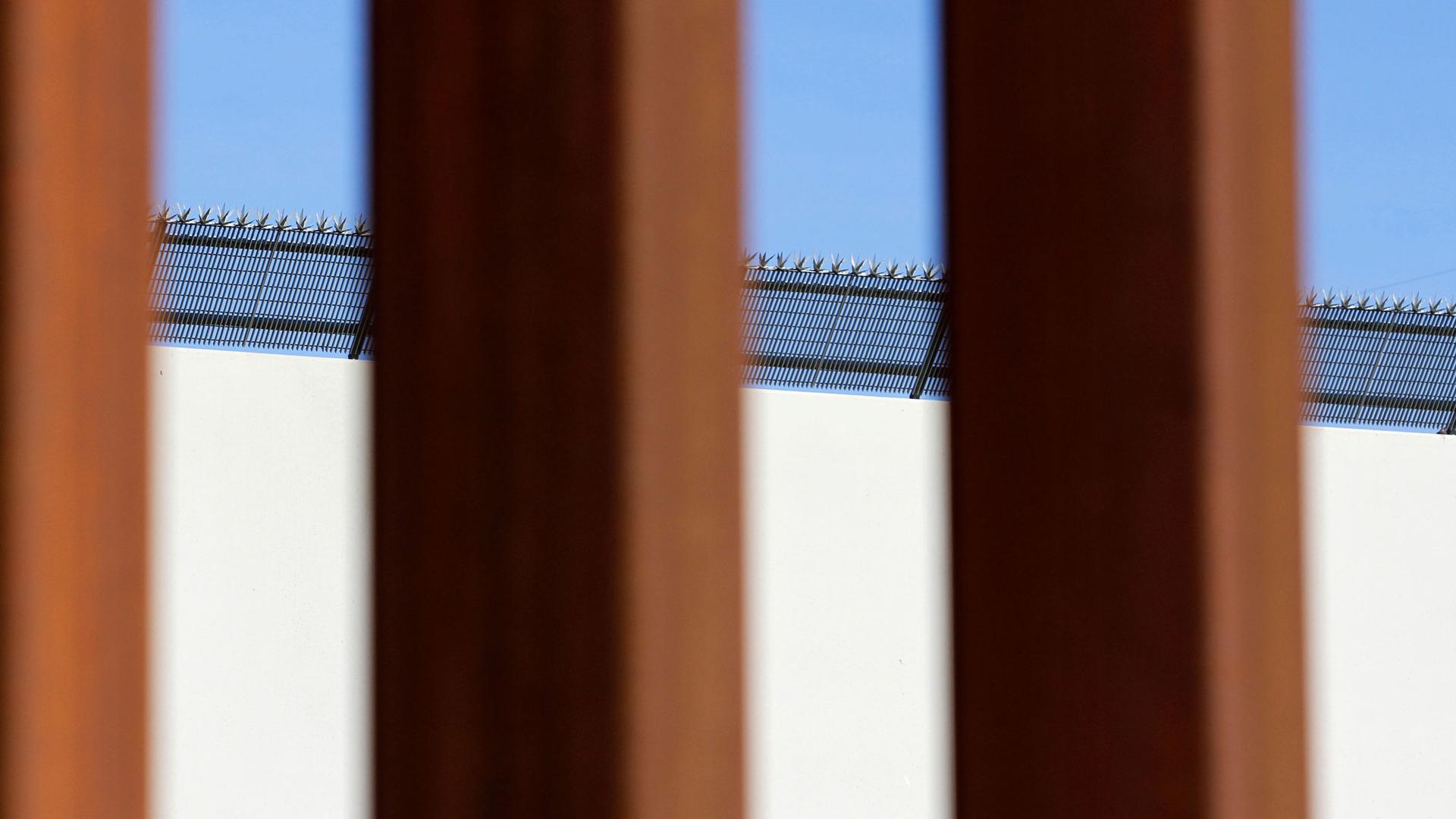US lawmakers reach tentative deal to avoid government shutdown
A prototype for US President Donald Trump’s border wall is seen through the border fence between Mexico and the United States.
While not containing the $5.7 billion President Donald Trump wants for a border wall, US congressional negotiators reached a tentative deal to try to avert another partial government shutdown on Saturday.
“We reached an agreement in principle” on funding border security programs through Sept. 30, Republican Senator Richard Shelby told reporters.
“Our staffs are going to be working feverishly to put all the particulars together,” Shelby said. Neither he nor three other senior lawmakers flanking him provided any details of the tentative pact.
But it was far from clear if the Republican president would embrace the agreement. His December demand for $5.7 billion this year to help pay for a wall on the US-Mexico border — rejected by congressional Democrats — triggered a 35-day partial government shutdown that ended last month without him getting wall funding.
A congressional aide, who asked not to be identified, said the outline of the deal included $1.37 billion for erecting new fencing along the southern border. That is about the same amount Congress allocated last year and far below what Trump has demanded.
The aide said none of the money would be for a “wall,” which Trump has been touting since he launched his campaign for president in 2016. Democrats say the wall would be costly and ineffective.
Two other congressional sources said only currently deployed designs could be used for constructing 55 miles of additional barriers. Those designs, which include “steel bollard” fencing, have been in use since before Trump became president.
Shortly after the deal was reached in the US Capitol, Trump held a rally in the border city of El Paso, Texas, to argue for the wall he says can protect Americans from violent criminals, drugs and a “tremendous onslaught” of migrant caravans.
Trump said he heard about progress in the talks just before he took the stage, but he too did not discuss details. “Just so you know — we’re building the wall anyway,” he said. “Maybe progress has been made — maybe not.”
Beto O’Rourke, the former Democratic congressman from Texas considering a 2020 White House run, held a counter-rally just 200 yards away and accused Trump of stoking “false fear” about immigrants and telling “lies” about O’Rourke’s hometown of El Paso.
But a vocal group of conservatives influential with Trump has urged him to remain steadfast in his demand for the border wall money. In comments about the tentative congressional deal reached on Monday, Fox News commentator Sean Hannity told his viewers: “Any Republican that supports this garbage compromise, you will have to explain.”
Detention beds
Under Monday’s agreement, which must be fleshed out by congressional staff experts, Democrats gave up on a demand they floated on Friday night to lower the cap on immigrant detention beds in the interior of the United States.
Democrats had complained the Trump administration was increasing detention capacity as a way of speeding up deportations of illegal immigrants, some of whom were seeking asylum under US law.
But an overall cap — on borders and in the interior — would remain at 40,520 beds. The aide said that despite that cap, the number had actually grown to 49,057 and that under the deal, it would be brought down to the legal cap.
But one of the other aides said the deal would give Trump the flexibility to increase the number to 52,000 if necessary.
Democratic Representative Nita Lowey said on Monday night: “I hope by Wednesday we’ll have a finished product.” Lowey said she had been in touch with House of Representatives Speaker Nancy Pelosi, who she said “has confidence I have made the right decision.”
Trump agreed to reopen the government last month for three weeks to allow congressional negotiators time to find a compromise on government funding for the rest of the fiscal year, which ends on Sept. 30, to avert another shutdown.
The handful of lawmakers leading the negotiations met privately for about two hours on Monday. They said they wanted to seal a plan by Monday night to allow time for the legislation to pass the House of Representatives and Senate and get Trump’s signature by Friday, when funding is due to expire for the Department of Homeland Security, the Justice Department and several other federal agencies.
Without a new injection of federal funds, an array of federal agencies would have to suspend some activities, ranging form the maintenance of national parks to publication of economic data that is important to financial markets.
During the record-long partial government shutdown, which ran from Dec. 22 to Jan. 25, 800,000 federal workers went without pay even though many of them were required to report to work.
The shutdown ended shortly after a shortage of federal air traffic controllers triggered delays of hundreds of flights at airports in the New York and Philadelphia areas.
In recent weeks, Trump has threatened to declare a “national emergency” if Congress did not give him money to build a border wall. He says that would allow him to use existing funds for other activities to build a wall — an idea that Democrats and many Republicans in Congress oppose.
By Richard Cowan and Susan Cornwell/Reuters
Reporting by Richard Cowan; Additional reporting by Susan Cornwell and Steve Holland in Washington and Roberta Rampton in El Paso, Texas; Editing by Will Dunham and Peter Cooney.
We want to hear your feedback so we can keep improving our website, theworld.org. Please fill out this quick survey and let us know your thoughts (your answers will be anonymous). Thanks for your time!
